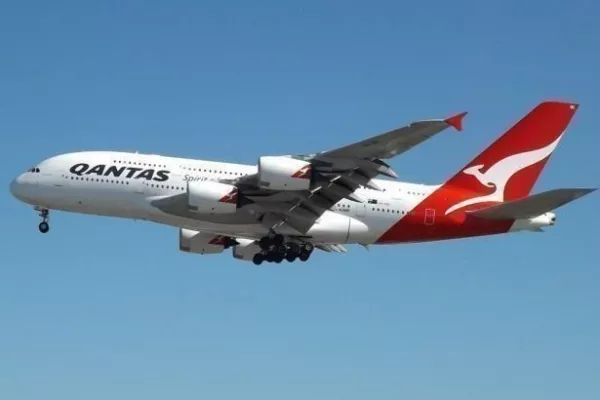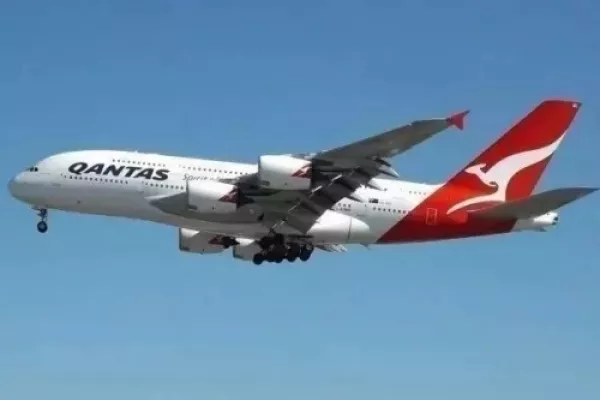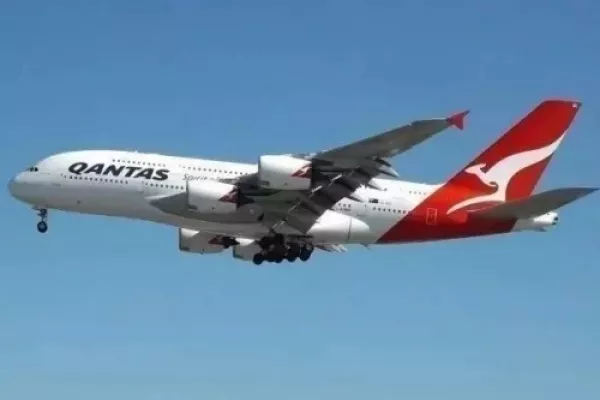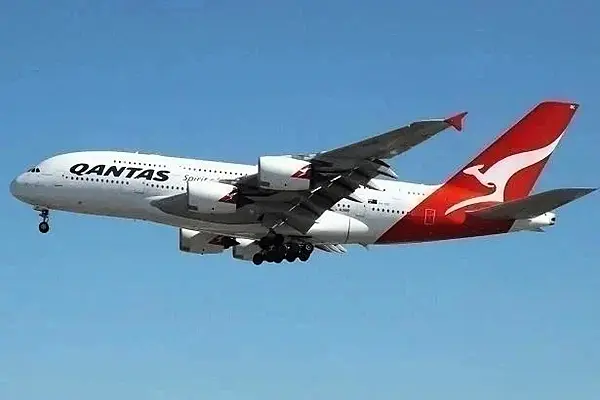Qantas Airways Ltd QAN.AX has seen a significant rise in international ticket searches and bookings since Australia said that it would reopen its borders to vaccinated travellers last month, a senior executive has said.
Andrew David, the airline's chief executive for domestic and international, said bookings for flights into Australia had doubled on the first day following the announcement that borders would open on 21 February.
"Bookings are strongest out of the United States and UK and we've also seen spikes from South Africa, India and Canada, with March, April and May the most popular months for travel," David said in a statement.
Australia has kept its borders all but shut for nearly two years during the COVID-19 pandemic. International travel spending plunged from A$44.6 billion ($31.93 billion) in the 2018/19 financial year to A$1.3 billion in 2020/21, says Tourism Research Australia.
China and New Zealand, which were Australia's largest inbound markets in 2019 before the pandemic, remain effectively shut because travellers face lengthy quarantine when returning home.
The United States and Britain, the third and fourth biggest inbound tourism markets respectively in 2019, do not require any isolation for returning travellers.
Qantas plans to restart several international routes in the coming weeks, including Sydney-Dallas, Brisbane-Singapore, Sydney-Manila and Brisbane-Los Angeles.
Qantas Points To Improving Outlook After Omicron Delays Recovery Plans
The above news was followed by news that the reopening of Australia's internal and external borders has significantly boosted the outlook for Qantas Airways Ltd QAN.AX, although the Omicron COVID-19 outbreak has set back its business recovery plans by approximately six months.
Qantas posted a A$1.28 billion ($925.57 million) first-half underlying loss before tax in the six months ended 31 December 31, steeper than the A$1.03 billion loss a year earlier. The airline also flagged a A$650 million earnings hit from Omicron in the second half.
Preparing for a surge in demand as the earlier Delta variant wave receded, Qantas had by early December recalled about 11,000 staff who had been idled without pay during the pandemic.
But the surprise arrival of the Omicron variant, which pushed Australian COVID cases to record levels, dented demand and forced the airline to cut domestic and international capacity plans for the current quarter by around one third.
"The impact of Omicron has pushed everything out by around six months from where we thought we would be," chief executive Alan Joyce told reporters, adding the earlier-than-needed ramp up of staff and equipment would add A$180 million to costs in the second half.
Qantas is also facing inflationary pressures from suppliers and rising fuel prices, though 90% of its fuel cost is hedged in the second half and its cost-cutting programme is on track, chief financial officer Vanessa Hudson said.
The airline said that it would run 68% of its pre-COVID domestic capacity in the third quarter, rising to 90% to 100% in the fourth quarter. International capacity would be approximately 22% of pre-COVID levels in the third quarter, doubling to 44% in the fourth quarter.
The airline also reported a loss before interest, tax, depreciation and amortisation of A$245 million, slightly better than its December forecast of a A$250 million to A$300 million loss.
Jet Orders
Australia on Monday 21 February opened its international border to fully vaccinated travellers from all countries, the last step in a staged border opening that began in November. Internally, Western Australia will be the final state to open on 3 March.
"Where we are now, I think we are very optimistic," Joyce said as the airline pointed to solid bookings for the upcoming Easter holiday period. "The outlook is looking a lot stronger."
Joyce said Qantas remained on track to finalise an order for 40 Airbus AIR.PA narrowbody planes to begin renewing its domestic fleet.
It also expects to place an order by for A350 widebody jets capable of the world's longest non-stop commercial flights from Sydney to London that could start in mid-2025, he said.
"We are hoping to get to both of them by the middle of the year," he said of the orders. "They may not be the exact same time."
Air New Zealand Heading For Worst Annual Result Since 2001 After Tripling H1 Loss
Neighbouring New Zealand is opening more slowly and Air New Zealand AIR.NZ has forecast that it would post its biggest annual loss since 2001.
Air New Zealand Ltd AIR.NZ flagged that it was heading for the worst annual loss since 2001 due to a combination of an Auckland lockdown, expiring government relief schemes, rising fuel prices and an ongoing international border closure.
As other airlines globally recover from the worst of the pandemic, Air New Zealand forecast it would report an annual underlying loss before tax and significant items of more than NZ$800 million ($541 million) in the financial year ending June 30, around double last year's figure of NZ$440 million.
The forecast came after the airline reported its first-half statutory loss before tax more than tripled to NZ$367 million, from NZ$105 million a year earlier.
Air New Zealand chairman Therese Walsh said that its performance in the 2021 financial year had been better because the domestic network had largely kept flying and travel bubbles with Australia and the Cook Islands had boosted the second half.
"The 2022 financial year has and will continue to be much more heavily impacted, both by continued suppressed demand and rising costs," she said in a statement.
Air New Zealand also said on Thursday it plans to raise equity by the end of March or shortly thereafter to replace a NZ$2 billion liquidity package from its largest shareholder, the New Zealand government.
The airline had drawn down NZ$760 million of a government loan by Wednesday, it said.
The carrier's domestic business was hit hard in the first half by a lockdown in Auckland, the country's largest city, at a time when international borders remained closed.
The government has announced plans for a phased border opening this year, but travel bodies say rules requiring self-isolation on arrival need to be removed to revive the struggling tourism sector.
Air New Zealand added that there was still "a large degree of uncertainty" over the impact of the Omicron variant on demand for domestic travel for the rest of the financial year and self-isolation rules would have a significant impact on international demand.
News by Reuters, edited by Hospitality Ireland. Click subscribe to sign up for the Hospitality Ireland print edition.









